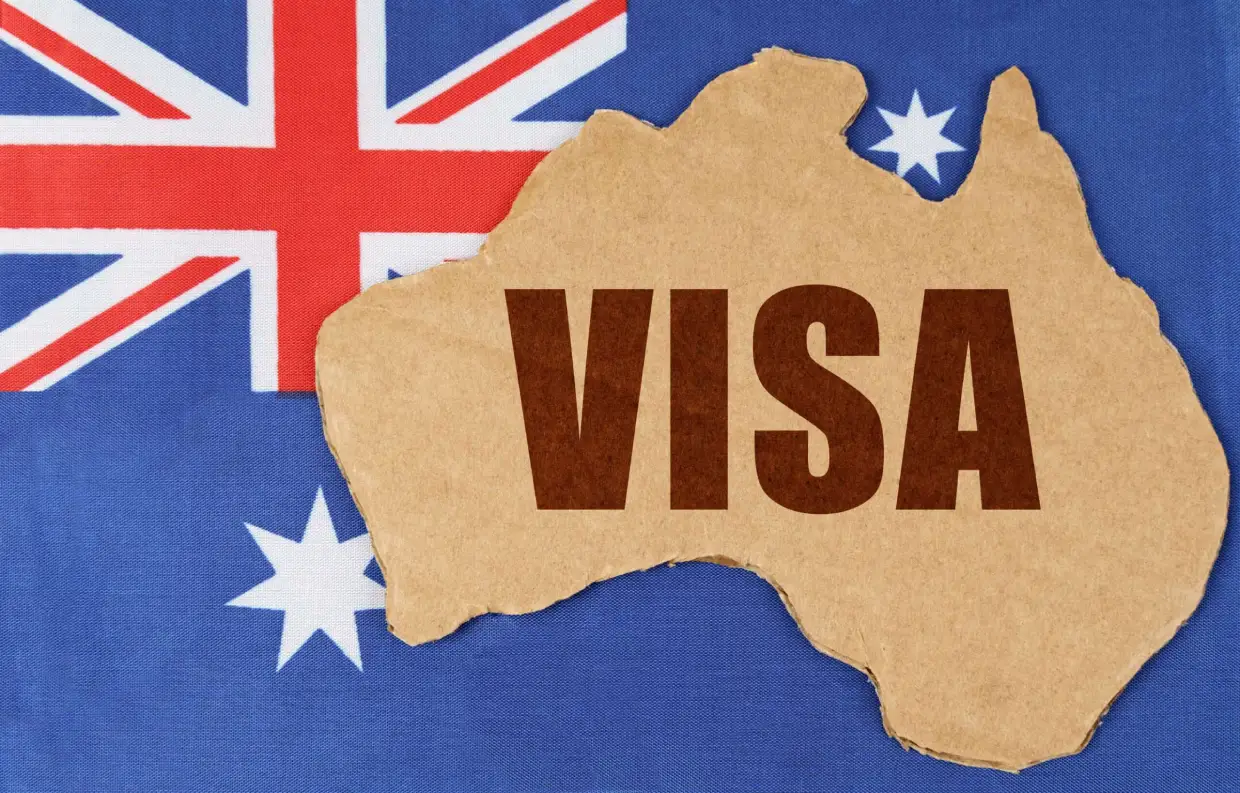Are you looking to crack the code of skill assessment in Australia? Look no further! This comprehensive guide is here to demystify the process and provide you with the information you need to navigate the intricacies of skill assessment with ease.
Why skill assessment is important for migration and employment
Skill assessment plays a crucial role for individuals planning to migrate to Australia or seeking employment opportunities in certain occupations. It is the process by which your skills and qualifications are evaluated to determine if they meet the standards set by the Australian government or relevant assessing authority. By undergoing skill assessment, you can ensure that your skills are recognized and valued in the Australian job market.
The Australian government has implemented the skill assessment as a means to maintain the quality and integrity of the workforce. It also helps to ensure that individuals entering the country or seeking employment possess the necessary skills and qualifications required for specific occupations. Skill assessment also provides a level playing field for both skilled professionals and employers. Therefore, ensuring that the right candidates are matched with the right job opportunities.
Skill assessment is particularly important for migrants who wish to apply for certain immigration programs, such as the Skilled Independent Visa (subclass 189) or the Skilled Nominated Visa (subclass 190). These visas require applicants to undergo a positive skill assessment as part of the eligibility criteria.
The skill assessment process in Australia
The skill assessment process in Australia involves several steps that applicants need to follow in order to have their skills recognized. The first step is to identify the relevant assessing authority for your occupation. There are different assessing authorities in Australia, each responsible for assessing specific occupations. It is important to choose the right assessing authority to ensure that your skills are properly evaluated.
Once you have identified the assessing authority, you will need to check the eligibility criteria set by the authority. Each assessing authority has its own set of requirements. In fact, these requirements may include educational qualifications, work experience, English language proficiency, and other specific criteria. It is essential to thoroughly review the eligibility criteria to determine if you meet the requirements before proceeding with the skill assessment application.
After ensuring that you meet the eligibility criteria, the next step is to gather the required documents for the skill assessment. These documents may include educational certificates, employment references, English test results, and any other supporting evidence of your skills and qualifications. It is important to provide accurate and authentic documents to avoid any delays or complications in the assessment process.
Understanding the different skill assessment authorities
In Australia, there are several assessing authorities responsible for evaluating the skills and qualifications of individuals in specific occupations. Each assessing authority follows its own assessment process and has its own set of criteria. It is crucial to understand the role of the assessing authority relevant to your occupation to ensure that you meet their requirements.
For example, the Australian Computer Society (ACS) is the assessing authority for ICT professionals. Engineers Australia assesses engineering occupations. Additionally, the Australian Nursing and Midwifery Accreditation Council (ANMAC) assesses nursing and midwifery occupations. These are just a few examples of the many assessing authorities in Australia.
Eligibility criteria for skill assessment
The eligibility criteria for skill assessment vary depending on the assessing authority and the occupation being assessed. Generally, these criteria include educational qualifications, work experience, and English language proficiency. It is important to carefully review the eligibility criteria set by the assessing authority. Understand the criteria to determine if you meet the requirements.
For example, if you are applying for a skill assessment as an ICT professional, the Australian Computer Society (ACS) may require a relevant degree or equivalent qualification, a minimum number of years of work experience, and a certain level of English proficiency. Meeting the eligibility criteria is essential to ensure a successful skill assessment outcome.
Documents required for skill assessment
When applying for skill assessment, you will need to provide certain documents as evidence of your skills and qualifications. The specific documents required may vary depending on the assessing authority and the occupation being assessed. However, some common documents that are often required include:
- Educational certificates: These include transcripts, diplomas, degrees, or any other relevant educational qualifications.
- Employment references: These are letters or documents from previous employers that verify your work experience and the tasks you have undertaken.
- English language test results: If English is not your first language, you may be required to provide test results from recognized English language proficiency tests such as IELTS or PTE.
It is important to ensure that all documents are authentic, accurate, and up-to-date. Providing false or misleading information can result in the rejection of your skill assessment application.
Common mistakes to avoid during skill assessment
During the skill assessment process, it is important to avoid common mistakes that can potentially lead to delays or negative outcomes. Some common mistakes to avoid include:
- Incomplete or inaccurate documentation: Ensure that all required documents are complete, accurate, and properly certified.
- Insufficient evidence of work experience: Provide detailed employment references that clearly outline your roles, responsibilities, and tasks performed.
- Lack of English language proficiency: If English is not your first language, make sure to meet the required level of English language proficiency by taking recognized tests such as IELTS or PTE.
- Failure to meet the eligibility criteria: Thoroughly review the eligibility criteria set by the assessing authority and ensure that you meet all the requirements before applying for skill assessment.
By avoiding these common mistakes, you can increase your chances of a positive skill assessment outcome.
Tips for preparing and submitting your skill assessment application
Preparing and submitting a skill assessment application can be a complex process. To ensure a smooth and successful application, consider the following tips:
- Thoroughly research the skill assessment process: Familiarize yourself with the requirements, documentation, and assessment criteria set by the relevant assessing authority.
- Seek professional advice: If you are unsure about any aspect of the skill assessment process, consider consulting with ICAustralia.
- Organize and authenticate your documents: Ensure that all required documents are properly organized, certified, and authentic. Keep copies of all documents for your records.
- Pay attention to detail: Double-check your application to ensure that all information is accurate and complete. Pay attention to spelling, grammar, and formatting.
- Submit your application on time: Be aware of the application deadlines and ensure that your application is submitted before the due date.
By following these tips, you can increase your chances of a successful skill assessment application.
Skill assessment for specific occupations
The skill assessment process in Australia varies depending on the occupation being assessed. Different assessing authorities have specific requirements and criteria for each occupation. It is important to understand the skill assessment process for your specific occupation to ensure a successful outcome.
For example, if you are an engineer, you will need to undergo a skill assessment by Engineers Australia. This assessment will evaluate your qualifications, work experience, and skills in the engineering field. Similarly, if you are a nurse or midwife, you will need to be assessed by the Australian Nursing and Midwifery Accreditation Council (ANMAC).
Understanding the specific skill assessment requirements for your occupation will help you navigate the process more effectively and increase your chances of a positive outcome.
Conclusion: The importance of skill assessment in Australia’s job market
Skill assessment is a crucial step for individuals planning to migrate to Australia or seeking employment opportunities in certain occupations. It ensures that your skills and qualifications are recognized and valued in the Australian job market. By undergoing skill assessment, you can increase your chances of securing employment. Additionally, you can gain permanent residency and contributing to the Australian workforce.
In this comprehensive guide, we have covered the various aspects of skill assessment in Australia. Remember, cracking the code of skill assessment in Australia is achievable with the right information and guidance. Good luck on your skill assessment journey!
Eager to move to Australia? If so, take the first step by reaching out to ICAustralia today. Our dedicated team is committed to providing you with personalized and comprehensive support, guiding you through each stage of your immigration journey. From initial consultations to document preparation and application submission, ICAustralia ensures that you have a reliable partner by your side. Additionally, we understand that every immigration journey is unique, and our goal is to tailor our services to meet your specific needs, making the transition to Australia as seamless and stress-free as possible. Don’t just dream about your Australian adventure – let ICAustralia turn it into a reality. Contact us now and begin your journey to a new life in the land Down Under!


